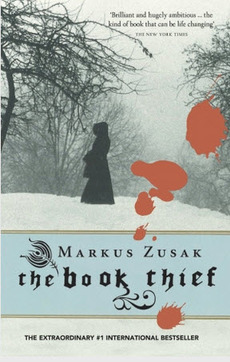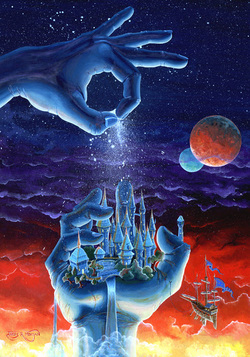
It matters because fantasy is often still seen as an embarrassing distant cousin by the literary establishment, an attitude based entirely on ignorance where the worst examples are cited as proof rather than the best. The view is that fantasy can't be important and profound the way real literature is; it is trivial and of no consequence in the world of letters.
The Book Thief is both important and profound. It has been incredibly popular. It is literature.
It is also fantasy.
What other conclusion can you possibly come to about a book whose narrator is Death? This element of the book isn't a minor side-show. I was afraid at first that it was going to be simply a device to make the novel appear more literary, or that it was for shock value at the start and the narrator would soon become irrelevant to the story. I was wrong on both counts. The narrator ends up being integral to the power of the novel. The Book Thief is one of those rare books where its quirks and unusual techniques draw you further into the story rather than throw you out of the world being created. The writing has a haunting simplicity. How can The Book Thief be anything but fantasy when one of the narrator's most striking lines is: "I'm haunted by humans"?

 RSS Feed
RSS Feed